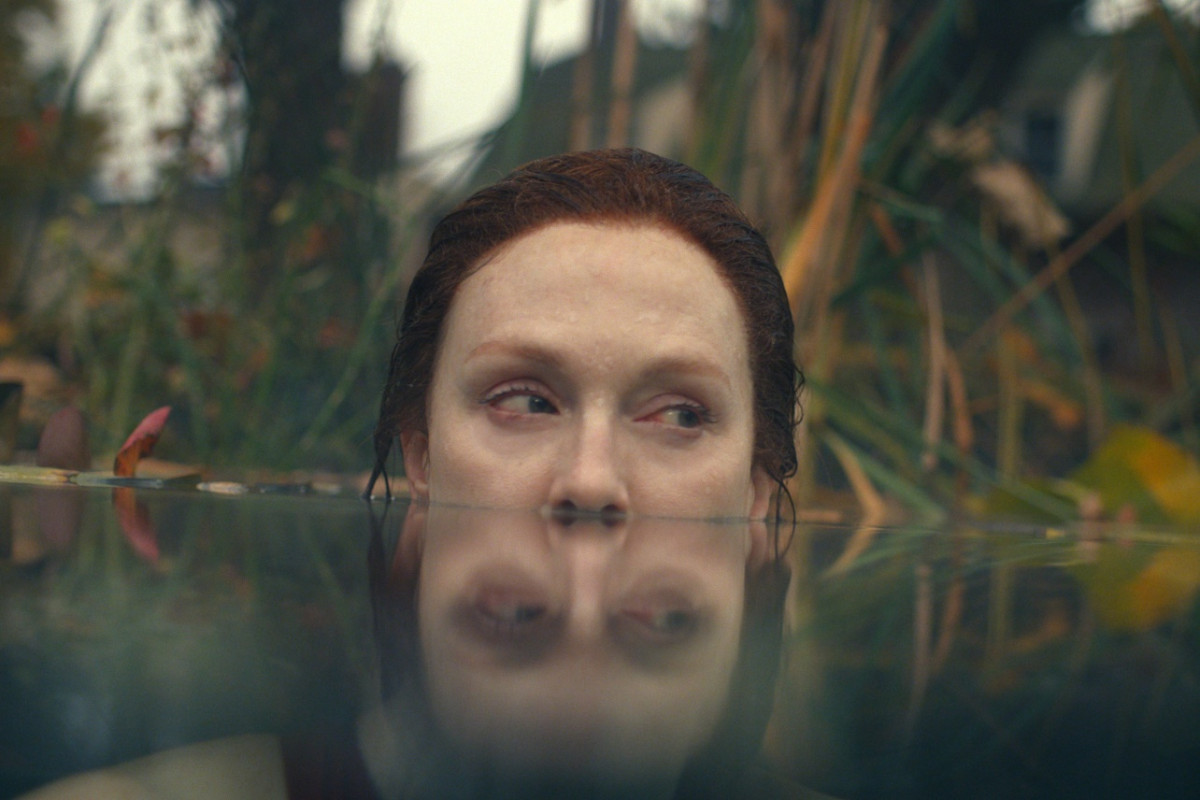When a studio announces a new Stephen King adaptation, certain assumptions come to mind. You can expect a stacked cast composed of at least one person acting unhinged. There will be unsettling metaphoric monsters that transform into actual monsters. There will be more body horror than jump scares. But in recent years there’s been another characterizing detail, a sort of excitable smugness. By now everyone knows who Stephen King is and everyone in Hollywood wants a piece of the master of horror’s empire. It’s that same cloying praise that Lisey’s Story avoids. Even when it’s at its weakest, Lisey’s Story is reminiscent of King at his strongest, and most honest.
It makes sense that, in 2021, Stephen King’s work would be treated with a sense of eternal reverence. Over the course of his career, King has published 62 novels that have sold more than 350 million copies. Adaptations of his work haven’t just produced good horror movies. They’ve revolutionized both the genre and filmmaking as a whole. This is all to say that the cult of King exists for a reason. This powerhouse of an author has creating and is still creating a legacy worthy of intense fan devotion and dissection.
But save for the best modern King adaptations, there’s a self-satisfied air that comes from telling a Stephen King story. It’s felt in Doctor Sleep, an overall decent movie that is so preoccupied with its connection to The Shining that the film itself feels like the cheers of a fanboy. It’s there in 11.22.63 and Castle Rock, Hulu’s King adaptations that are so packed with references they sometimes risk losing their sense of universal horror this author perfected. It’s there in CBS All Access’ The Stand, a take that’s so clearly thrilled to be working with King it sometimes forgets to tell a coherent story in favor of being a collection of madcap characters. It defined The Dark Tower, a promising movie that immediately flopped due to its indecision to cater to hardcore fans or make the novel’s dense lore decipherable, instead choosing to do neither.
This reverence, which has led to some of the most cringe-worthy modern King moments, is completely absent in Lisey’s Story. That’s likely because this take on the 2006 novel comes from King himself. In a rarity, King wrote all eight episodes of the series. For the first time in years this is a King project that doesn’t feel preoccupied with impressing or offending the master of horror. Likely due to the fact that this was a deeply personal project for the author, the series also doesn’t seem to care if Lisey’s Story is fulfilling to the complicated whims of fans. Instead what King and executive producer J.J. Abrams have created is a series that’s entirely focused on this one, singular story, rarely than their author’s legacy. As a result it calls back to a time when Stephen King himself was a writer who was respected and enjoyed rather than intensely idolized.
That’s especially interesting considering the subject matter. More than most, the story of famed and deceased author Scott Landon mirrors King’s own career. It’s also interesting given the fact that so many other details of the series quietly tip their hat to the long history of this author’s adaptations.
This is best highlighted by director Pablo Larraín. At every turn Larraín seems to favor the 1980s era of King adaptations. Though the series is set in modern day, there’s a muddiness to most scenes that feels reminiscent of the cinematography of Stand By Me, Christine, and Cujo. The camera itself is playful, often utilizing experimental angles to create a near-constant state of disorientation in a way that’s not unlike Kubrick’s The Shining. The focus on violence and gore is extreme almost to the point of feeling sickly comical, calling to mind movies like Children of the Corn. It’s a fitting choice that works with the series’ refusal to be precious. In the ’80s Stephen King was certainly a name in the world of storytelling, but he wasn’t yet synonymous with blockbuster horror. Nods to that era pair nicely with King’s serious dedication to doing this story justice in his own words.
Lisey’s Story isn’t the best Stephen King adaptation. It’s an inconsistent one. Underneath its stellar cast and inspired direction is a story that teeters between a devastating reflection of mourning and a series that borders on self-parody through its repetition of the very-King “Boo’ya Moon,” a name that can be overlooked on page but is pointedly silly when said on screen. Yet for all its faults, Lisey’s Story is real. It’s the first work in years that’s felt like it’s been able to tell one of this author’s stories without any handwringing or fan-focused navel gazing. If only for that, Lisey’s Story feels like a breath of fresh air after a long scream.



















